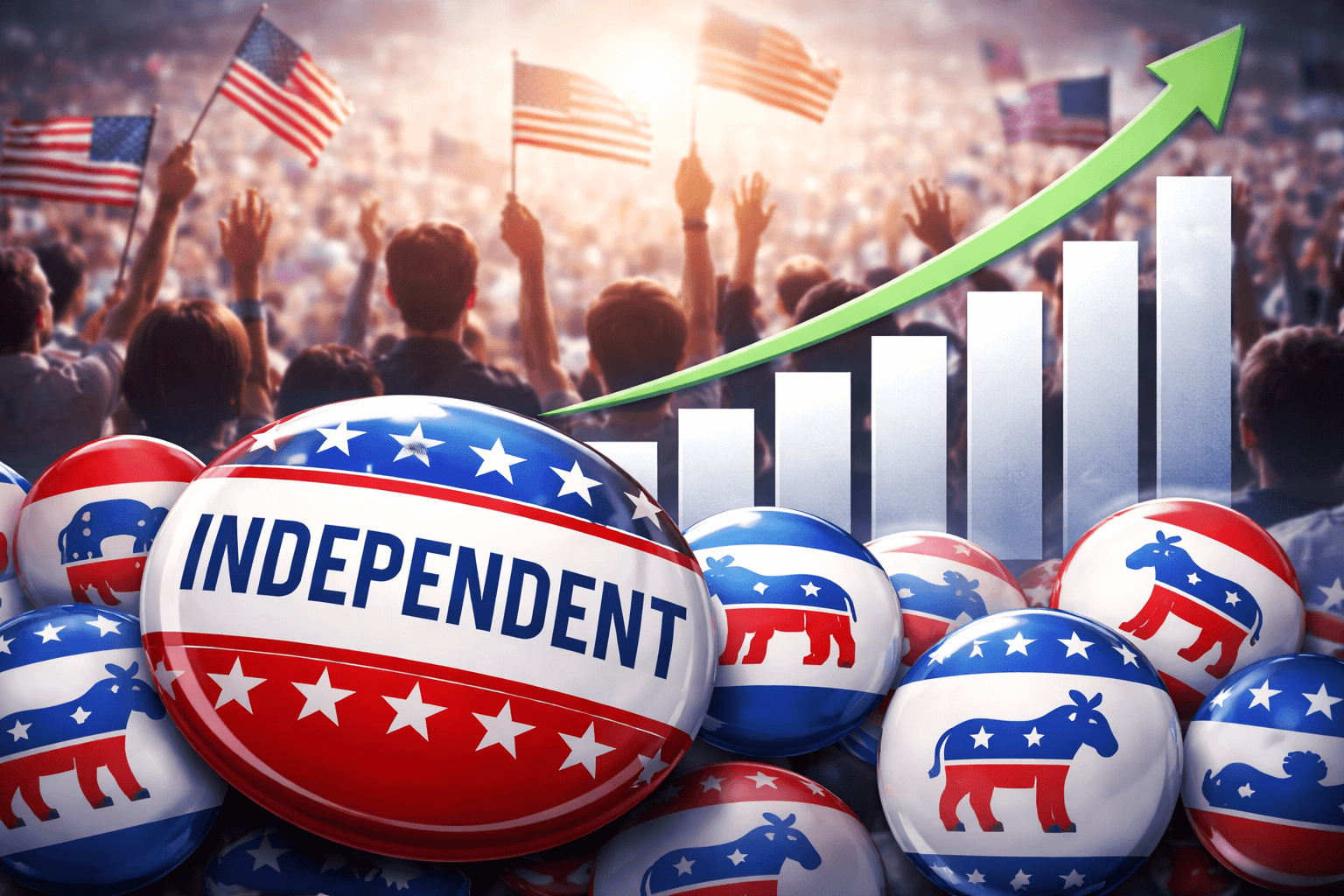Gallup: Independent Numbers Dominate; Parties Continue to Slip

Photo by Kelly Sikkema on Unsplash
Gallup reports that in 2023 the percentage of US voters who self-identified as independent tied a record-high average of 43% -- first set in 2014. Meanwhile, party identification continues to slip.
The latest report looks at the average from monthly surveys taken throughout the year. Independent ID went as high as 50% in April 2023.
The independent average rose two percentage points from 2022 to 2023. This is noteworthy because it is the first time in modern US history that no change or a small decline didn't occur going into a presidential election year.
Due to the partisan structures of the US electoral system, voters are forced to pick a side between the Republican and Democratic Parties, so a drop in independent ID is expected.
However, Gallup analyst Jeff Jones observed in 2023 that Gen X and Millennial voters are bucking historic trends by remaining independent even as they get older. And, Gen Z is more inclined to lean independent than either generation.
Mainstream news outlets that cover this Gallup report immediately look at it in terms of who benefits between the Republican and Democratic Parties. Their job is to keep the narrative framed around Team Red vs. Team Blue.
But few consider what this could mean in an election year in which independent and third-party candidates are more present in the electoral conversation because of big names like Kennedy and increased voter interest in a third option.
Robert F. Kennedy Jr, Cornel West, Jill Stein, and potentially Joe Manchin are all part of this conversation -- and while none of these candidates are likely to win, they will give voters who are largely dissatisfied with the two parties another option.
Fewer news outlets discuss what this could mean for the myriad of reform efforts across the country to make systemic changes to way elections are conducted.
Nonpartisan electoral reform has seen one historic election cycle after another consistently since 2010. Is it a coincidence that this corresponds with a rise in independent voters? Absolutely not.
It is reflected in national surveys that democracy is a priority issue for many US voters. As a result, primary reform, gerrymandering reform, campaign finance reform, voting reform, and more have built substantial momentum nationwide.
Until US elections are changed at a systemic level, the independent majority in the US won't be able to meaningfully participate or express themselves in elections.
They want competition and accountability -- something they're denied in a system that treats them like second-class voters.
 Shawn Griffiths
Shawn Griffiths





